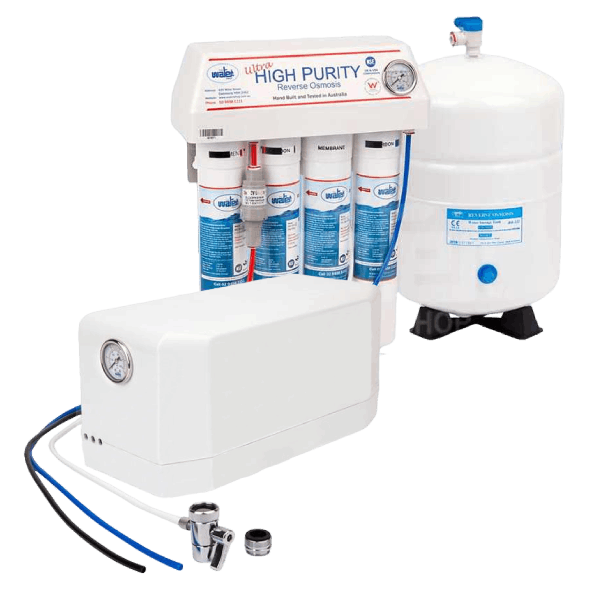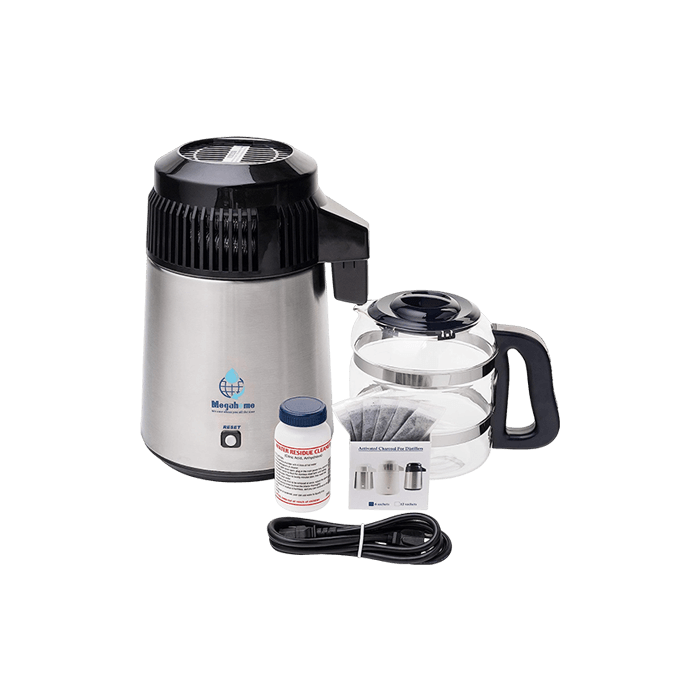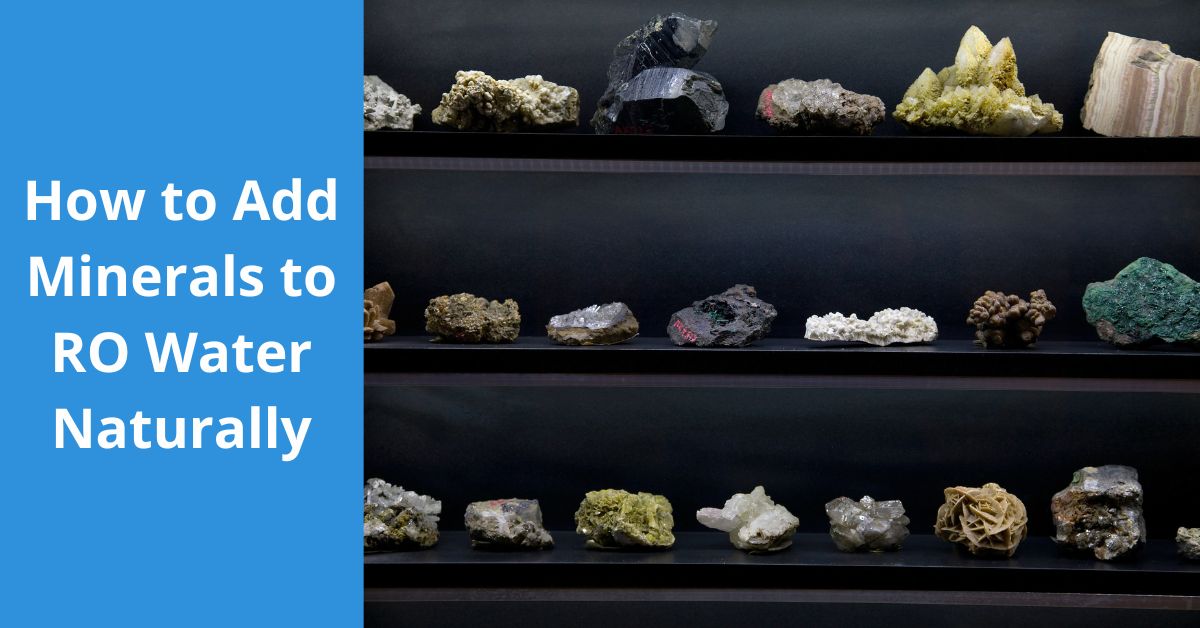Reverse osmosis (RO) water filtration is an effective method for removing contaminants from drinking water. However, this process also removes beneficial minerals. This article explores practical approaches to remineralising RO water, ensuring both purity and mineral content.
Reverse Osmosis Water Filters, including reverse osmosis benchtop water filters and reverse osmosis undersink water filters, are designed to produce exceptionally pure water. While this purity is beneficial for eliminating harmful substances, it also means that the water lacks essential minerals that contribute to human health and water taste.
How To Add Minerals To Reverse Osmosis Water?
Mineral Salt Addition
Adding a small quantity of mineral-rich salt, such as Himalayan pink salt, can introduce a variety of trace minerals to RO water. Use this method carefully to prevent excessive sodium intake.

Fruit and Vegetable Infusions
Infusing water with slices of mineral-rich fruits or vegetables can enhance mineral content naturally. Citrous fruits, particularly lemons, are effective sources of potassium, calcium, and magnesium.
Green Vegetable Extracts
Incorporating small amounts of mineral-dense green vegetable extracts, such as spinach or kale, can increase the water’s iron, calcium, and magnesium content. This method may alter the water’s colour and taste.
Commercial Mineral Drops
Mineral drops offer a precise method to add trace minerals to water. These concentrated solutions allow for the controlled remineralisation of RO water.
Alkaline Water Filters
For those using a reverse osmosis water filter, an additional alkaline filter cartridge can add minerals and increase the water’s pH level.
Calcium-Rich Additives
You can add calcium to water using food-grade sources like clean, crushed eggshells. This method requires careful preparation and filtration.
Mineral-Releasing Materials
Certain food-grade materials like limestone, marble, or ceramic can gradually release minerals into water. This method requires careful selection of materials and regular cleaning.
What Minerals Should I Take If I Drink Reverse Osmosis Water?
When remineralising RO water, focus on these key minerals:
Calcium: Essential for bone and dental health, as well as muscle function.
Magnesium: Crucial for various enzymatic reactions, muscle and nerve function.
Potassium: Important for heart health and fluid balance.
Sodium: Necessary in small amounts for fluid balance and nerve function.
Trace minerals: Including zinc, copper, and iron, which play vital roles in various bodily functions.

It’s important to add the beneficial minerals in appropriate amounts. Excessive mineral intake can be counterproductive.
Balancing Purity and Mineral Content
The primary advantage of Water Filters, whether it’s a reverse osmosis water filter or a Megahome water distiller, is their ability to remove harmful contaminants. By remineralising the water after filtration, one can achieve a balance between purity and mineral content.
Reverse Osmosis Water Filter

Megahome Water Distiller

It’s worth noting that a balanced diet typically provides a significant portion of the necessary minerals. Adding minerals to water acts as a dietary supplement and can improve the taste of RO water.
RO and distilled water lacks the taste that is associated with natural water sources. This is primarily due to a lack of dissolved minerals. Remineralisation can enhance the taste, making it more palatable for some consumers. The optimal method for remineralising RO water may vary based on individual preferences and needs. Some may prefer the precision of mineral drops, while others might opt for natural infusions. It’s advisable to experiment with different methods to find the most suitable approach.
Whether utilising a reverse osmosis benchtop water filter or other RO systems, the goal is to achieve water that is not only free from contaminants but also nutritionally beneficial. Through careful remineralisation, it’s possible to create water that supports overall health while maintaining the purity that RO filtration provides.




